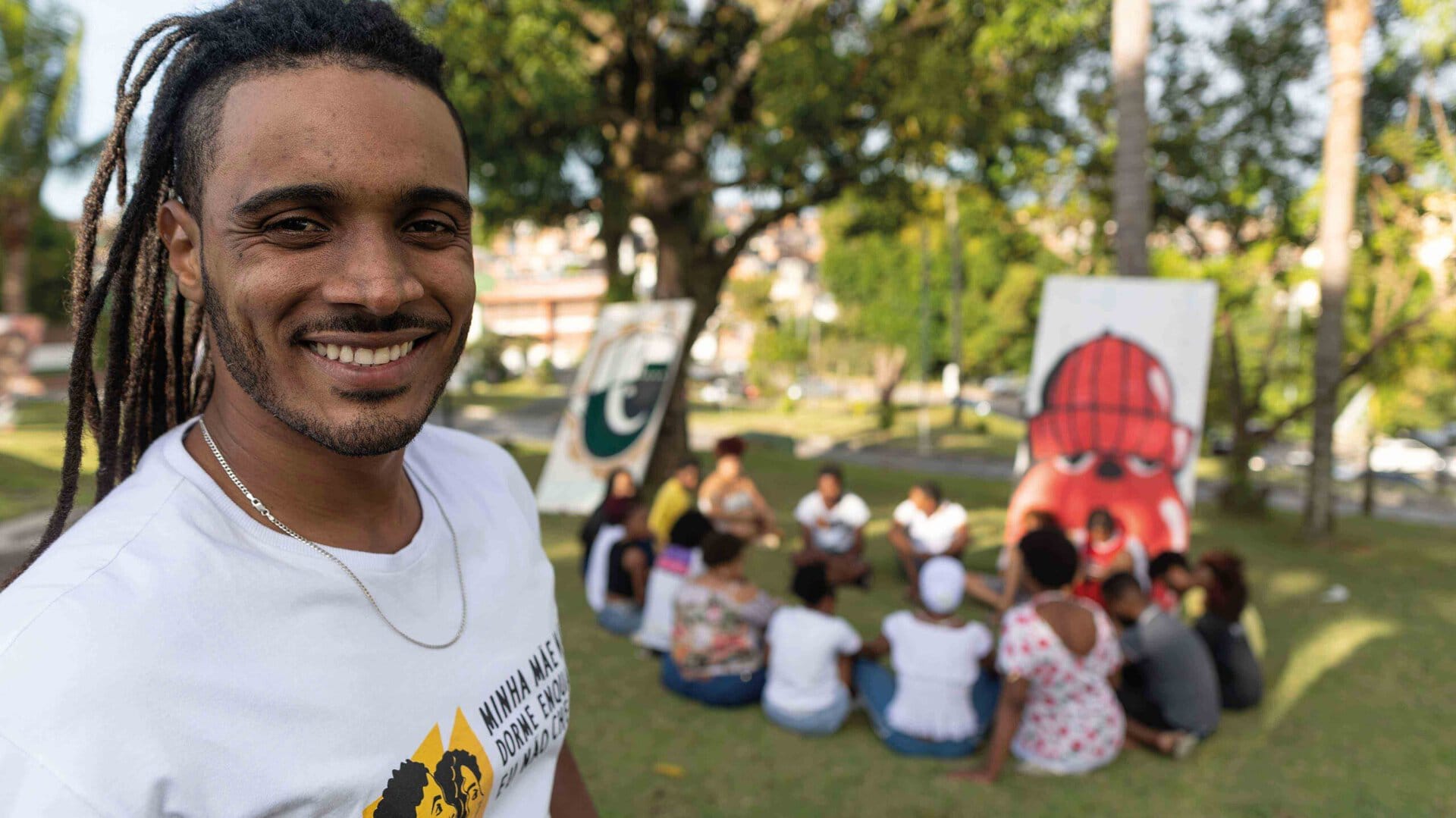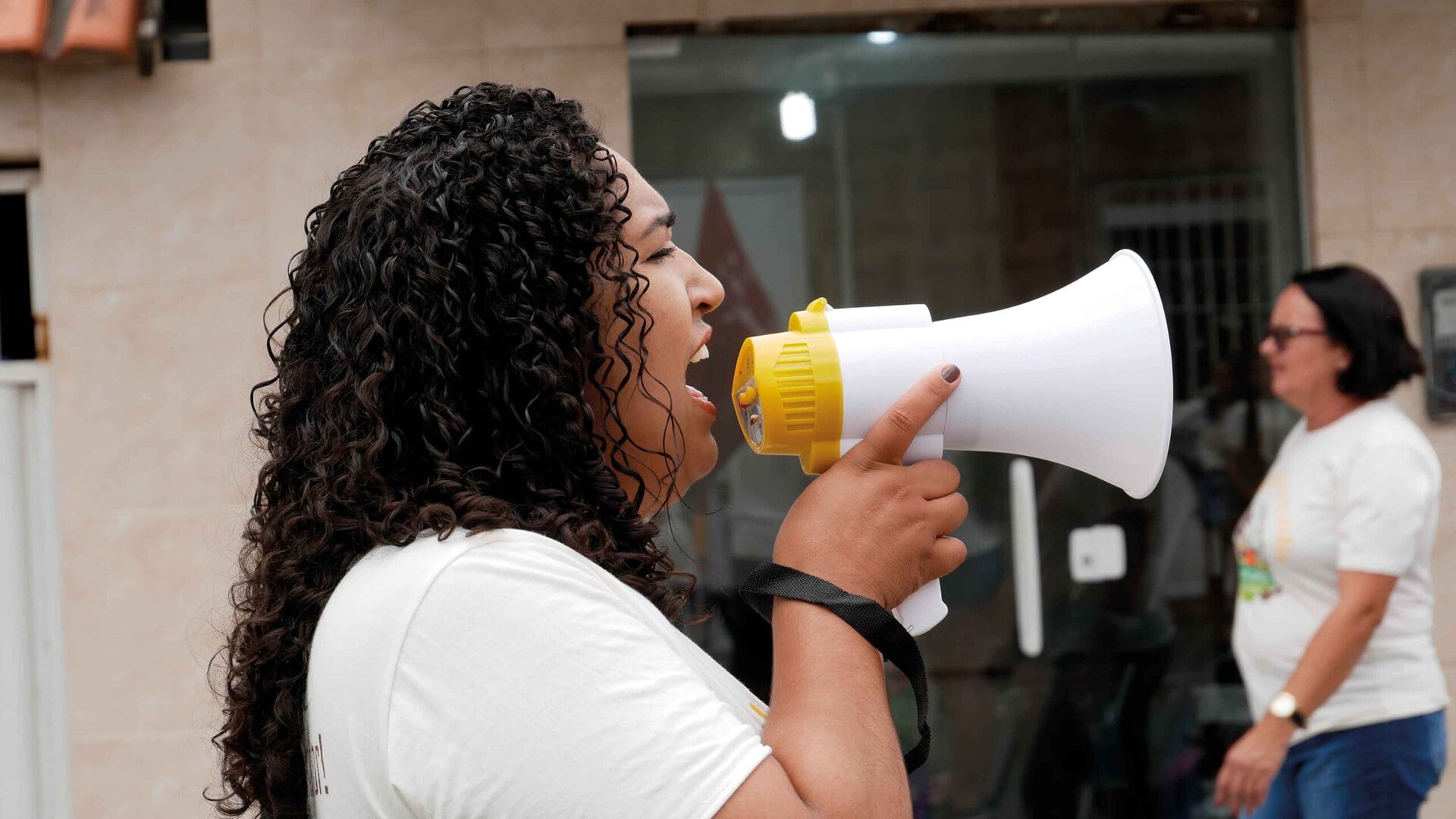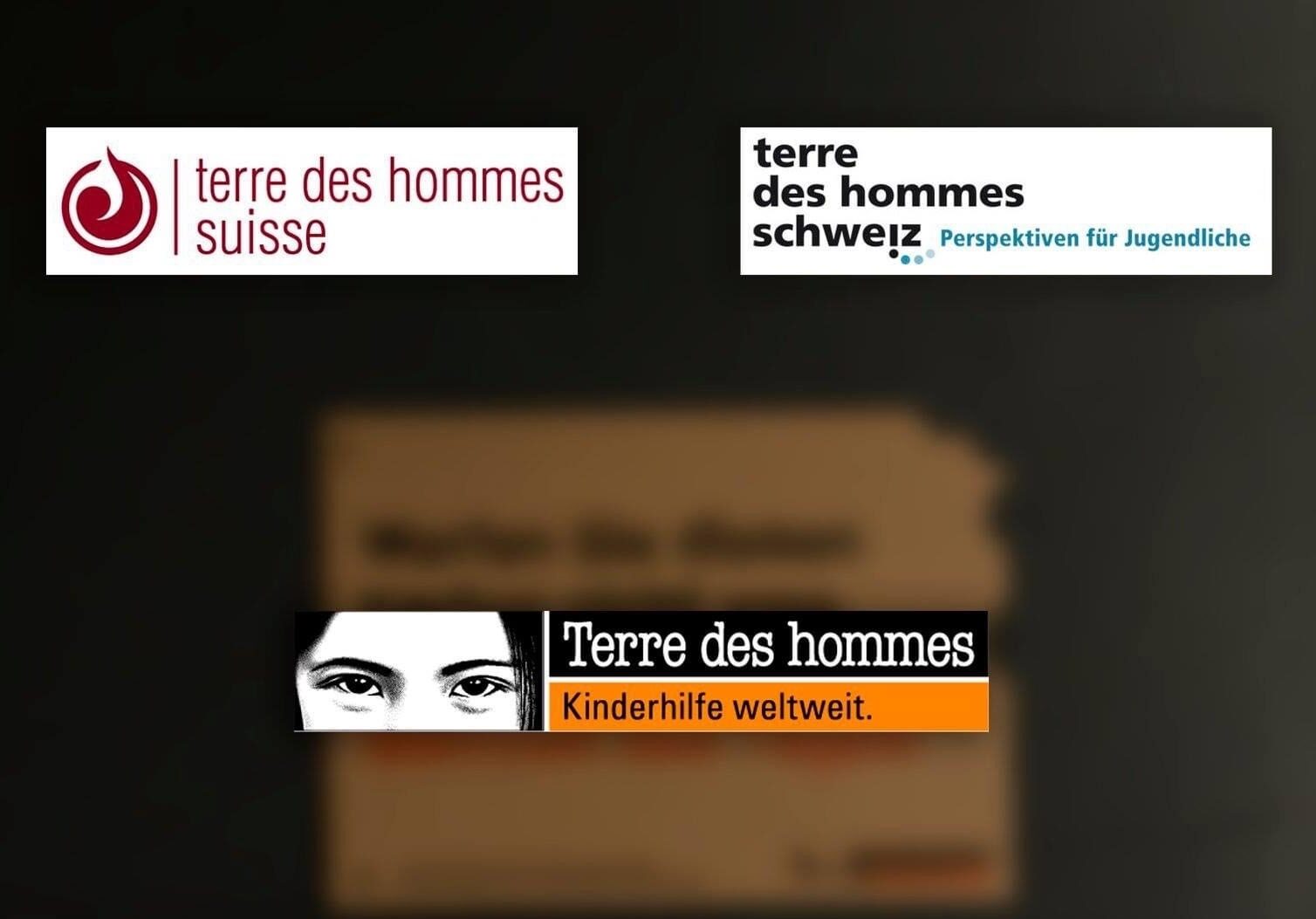In Salvador, Brazil, a group of young people are committed to a just future. Their aim is nothing less than to overcome deeply rooted structures of racism, discrimination and violence. Magno Ferreira de Jesus knows what it takes: The opportunity to dream.
Bullet holes mark the façade and entrance gate of the house where Magno Ferreira de Jesus lives. The 29-year-old lives in Cabula, a neighborhood in the megacity of Salvador in the Brazilian state of Bahia. Gunshots are part of everyday life in his neighborhood. “When there’s a police operation, I become a target too,” he says.
Every year, children and young people in Salvador die as a result of state violence. Ten years ago, twelve young people were killed in a police operation in the middle of Cabula. This massacre has left deep wounds in the community. “We all still find it difficult to talk about it,” says Magno. “I also lost colleagues, friends and neighbors. I could have been one of them.” The families affected are still struggling to come to terms with the situation legally.
The violent situation in Cabula has historical roots. 1.7 million people were deported to Bahia during the colonial era. Naiara Leite, head of Odara, the local partner organization of terre des hommes schweiz, explains: “After the abolition of slavery, institutions were created with the aim of keeping the black population under control. In this logic, the neighborhoods where the majority of the Black population lives also became targets of state violence.” (Editor’s note: “Black” is a political self-designation and is capitalized in this context).
Changing the system together
Every week, Magno meets with a group of almost 40 young people in Cabula. They discuss human rights and anti-racism and learn how they can defend themselves against unjust treatment without resorting to violence. They process their personal stories and perspectives in plays, podcasts and poems. “In this way, we can challenge the system of violence that surrounds us and change it in the long term,” Magno is certain. In this Odara project, he has the role of multiplier: Magno
is an important contact person for the young people, listens to their problems, encourages and supports them. “When we started the group, there were young people who hadn’t been to school for six months,” he says. However, the group then managed to motivate them to go back to school. By standing up for each other, the project participants strengthen their self-confidence and self-esteem. The fact that the project has taken on a life of its own shows that it works: the young people are so committed that they are now founding an association and planning activities independently.

Know your own rights
Legal advice is an important part of Odara’s work. This is because disadvantaged communities in Brazil are excluded from access to justice. Only recently, a young person became a victim of gender-based violence (GBV). Thanks to the project’s human rights training, he knew what to do and turned to Odara for legal support. “This shows what we are all about in this project,” says Magno, “that the young people learn how to respond appropriately to violence, break out of the cycle of criminalization and are involved in cultural and educational activities instead.”
Odara also accompanies the families of child victims of state violence and campaigns nationally and internationally for justice, accountability and reparation. “Racism runs through all institutional and social structures. Prosecuting individual crimes is not enough,” emphasizes Naiara Leite from Odara.

Speak for yourself
Magno’s group started a podcast in 2024. In the first episode, the young people talked about the violence in Cabula. But this should not remain the dominant topic, explains Magno: “Our aim is to move from the police section of the media to the cultural section. We want to show that the youth of Cabula are committed to art, culture and rights. We want to speak for ourselves instead of letting others speak about us.”
Through the project, the young people have experienced the power they develop when they join forces. For example, they filed complaints with the public prosecutor’s office and sent letters to international organizations. For this advocacy work, they also networked with youth groups from neighboring districts and overcame former rivalries.
Dreaming of a better future
“In our context, dreaming is very difficult. It hardly seems possible to escape from the conditions we are exposed to. But now the young people are starting to think beyond their current circumstances and imagine a better future,” says Magno. Dreaming and striving for change together strengthens the whole Cabula community. Perhaps the most remarkable result of working with the young people is that dreams become possible in the first place: Only when a better future becomes imaginable can a young generation fully commit to its realization.



